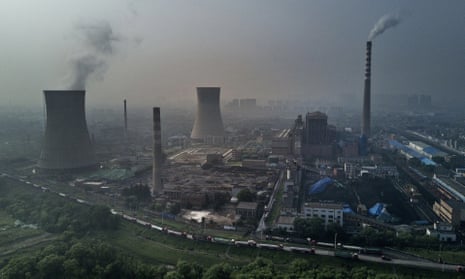Banks should disclose lending to companies with carbon-related risks, according to recommendations in a new report by the Task Force on Climate-related Financial Disclosures.
The TCFD report – part of a G20 initiative led by governor of the Bank of England Mark Carney and former mayor of New York City Michael Bloomberg – outlines how companies should disclose climate-related information in their financial filings, with the aim of allowing economies to properly value climate-related risks.
It recommends companies disclose all of their direct and and indirect greenhouse gas emissions, and describe the risks and opportunities caused by climate change under a range of potential scenarios.
More than 100 businesses with over $2 trillion of combined annual revenue have publicly committed to adopting the voluntary recommendations.
The report follows a draft published in December 2016, for which the TCFD received hundreds of submissions from respondents in 30 countries.
“Climate change presents global markets with risks and opportunities that cannot be ignored, which is why a framework around climate-related disclosures is so important,” Bloomberg said in a statement.
“The task force brings that framework to the table, helping investors evaluate the potential risks and rewards of a transition to a lower carbon economy.”
The recommendations were intended to be adopted by all companies, however there was extra guidance given to the financial sector, as well sectors likely to be most affected by climate change or the transition to a lower carbon economy – energy, transportation, construction and agriculture, food, and forestry
“Widespread adoption will provide investors, banks and insurers with that information, helping minimise the risk that market adjustments to climate change will be incomplete, late and potentially destabilising,” Carney said in a statement.
The TCFD, led by Bloomberg, was established at the COP21 in Paris by the Financial Sustainability Board (FSB). The FSB was created by the G20 in the aftermath of the 2007-08 global financial crisis and is chaired by Carney.
Christian Thimann, head of regulation sustainability at the insurer AXA and a member of the TCFD, said the financial sector had a particular interest in taking up the recommendations.
He said insurers like AXA had several reasons to adopt the voluntary code. “We of course have an intrinsic interest in the world fighting against climate change. We see the frequency and intensity of natural disasters linked to climate change augmenting every year,” he said.
“We consider a world of plus two degrees may still be insurable but a world of plus four degrees might not be.”
He said banks have a shorter outlook than insurers but have an important role in steering the entire economy: “They too can use these recommendations because they will need to steer their lending between sectors aligned with a 2-degree world and sectors not aligned. They need to know which are the sectors with a high risk of stranded assets in the future and those with a low risk of stranded assets in the future.”
Yeo Lian Sim, a special advisor to the Singapore Exchange and member of the TCFD said although the recommendations were made as a voluntary code for which there is a compelling business case to adopt, she thought they might one day become regulated for in some economies if they are widely adopted.
Over the next year, the TCFD would work to monitor and assist companies implementing their recommendations.
Philippe Defosses, chief executive of French pension fund ERAFP and vice chair of the UK’s Institutional Investor Group on Climate Change said: “The more companies report effectively on climate related risks and opportunities, the easier it becomes for investors to allocate the substantial amounts of capital required to implement the Paris Agreement and to work on their own climate risk disclosure.”
“There should be no resistance to the widespread adoption on the TCFD’s recommendations given how – in most G20 countries – companies already have legal obligations to disclose material risks in their routine financial filings, including those that related to climate change,” Defosses said.
Emma Herd, chief executive of Australia and New Zealand’s Investor Group on Climate Change, said investors see climate change as a material financial risk and are calling on business to disclose their 2C strategy.
“Boards need a plan for managing climate change risks and opportunities that shareholders can see. Having a globally consistent framework for reporting on material climate change risks will accelerate this trend,” she said.
Among the companies that publicly supported the recommendations were big miners and resource companies like BHP Billiton, Shell and Glencore; energy businesses like Engie Group; and major banks like HSBC, Bank of America and Citigroup.
